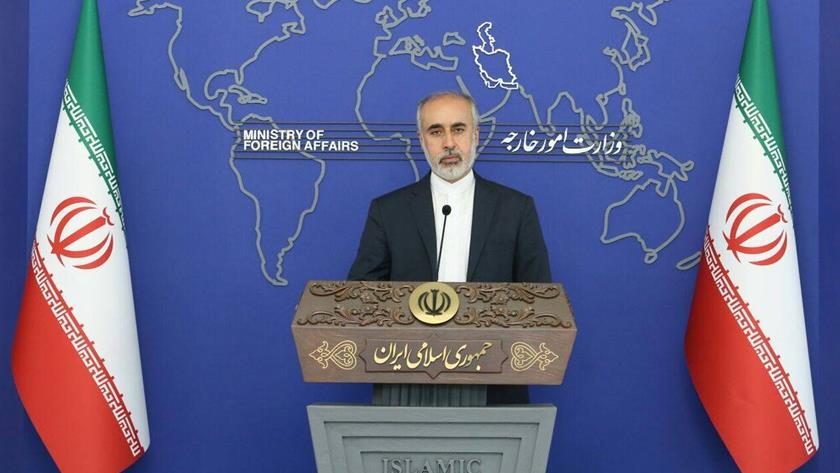Iran Accuses Western Nations of Escalating Regional Tensions, Vows Self-Defense
In a press conference, Iranian Foreign Ministry spokesperson Nasser Kanaani voiced strong accusations against several Western countries, alleging that their actions are intensifying regional tensions in the Middle East. Kanaani emphasized Iran’s inherent right to self-defense, citing Article 51 of the United Nations Charter.
Selective Application of International Norms
Kanaani criticized the selective enforcement of international norms by these nations, particularly in their support of Israel’s policies. He argued that such selective application not only heightens conflicts but also emboldens further aggression in an already volatile region. The spokesperson highlighted the complicity of these countries through the continuous supply of weapons to Israel, which he says perpetuates the cycle of violence against Palestinians.
Historical Context of Western Involvement
The Iranian spokesperson did not miss the opportunity to remind the world of the historical military involvements of these Western nations in Iraq and Afghanistan. According to Kanaani, their actions in these countries have historically undermined regional stability and security, leaving a legacy of conflict and chaos.
This historical context is crucial as it underscores a pattern of behavior that Kanaani believes continues today through the support of Israeli military actions. The accusation suggests a deep-rooted geopolitical strategy by Western nations that adds layers of complexity to the ongoing conflicts in the Middle East.
Commitment to International Law
Despite these tensions, Kanaani reaffirmed Iran’s commitment to uphold international law and vowed to protect its national interests against any unlawful use of force. This stance indicates that Iran is positioning itself as a defender of international norms, even as it faces accusations of violating them from other quarters.
This assertion comes at a time when the international community is increasingly scrutinizing Iran’s actions, particularly its nuclear program and regional influence. By framing its stance within the context of international law, Iran seeks to legitimize its actions on the global stage.
Broader Implications
Kanaani’s statements have broader implications for the already fragile stability in the Middle East. The ongoing supply of weapons to conflict zones and the selective application of international norms are not new issues. However, asserting these points in the current geopolitical climate adds an extra layer of urgency and potential for escalation.
Iran’s clear stance on upholding Article 51 of the UN Charter could be seen as a warning to those who may contemplate aggressive actions against it. This part of the UN Charter provides countries with the right to self-defense if an armed attack occurs against them, thereby framing Iran’s future actions as legally justified defensive measures.
Conclusion
The Iranian allegations against Western nations not only highlight the complexities of Middle Eastern geopolitics but also serve as a reminder of the ongoing struggle for political and military influence in the region. Iran’s commitment to self-defense under international law, coupled with its accusations against Western countries, sets the stage for a contentious and potentially volatile future.
For more context on the humanitarian impact in the region, see the recent reports on the missing individuals in Gaza as shared by the Gaza Health Ministry.
For additional information on recent developments and official statements, visit the Ministry of Foreign Affairs of Iran.
This article aims to provide readers with a nuanced understanding of the ongoing geopolitical dynamics in the Middle East, especially concerning Iran and its interactions with Western nations.
